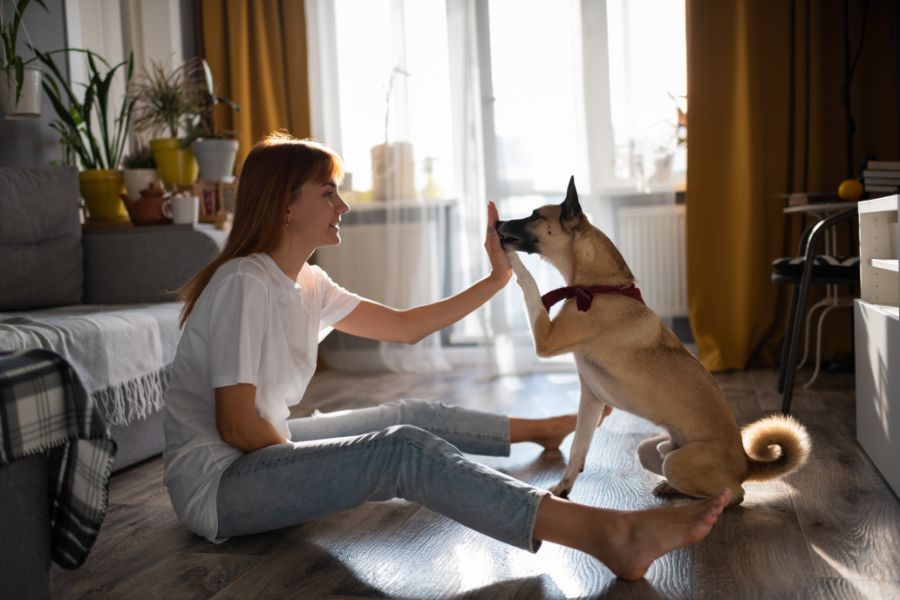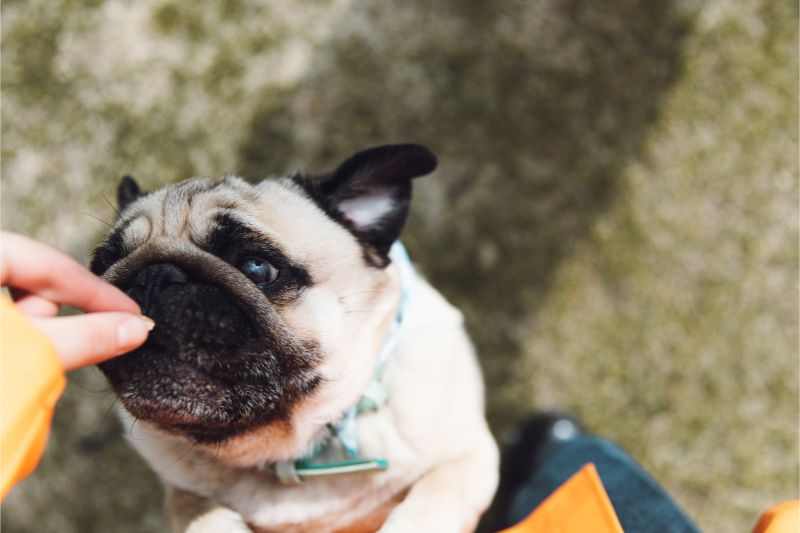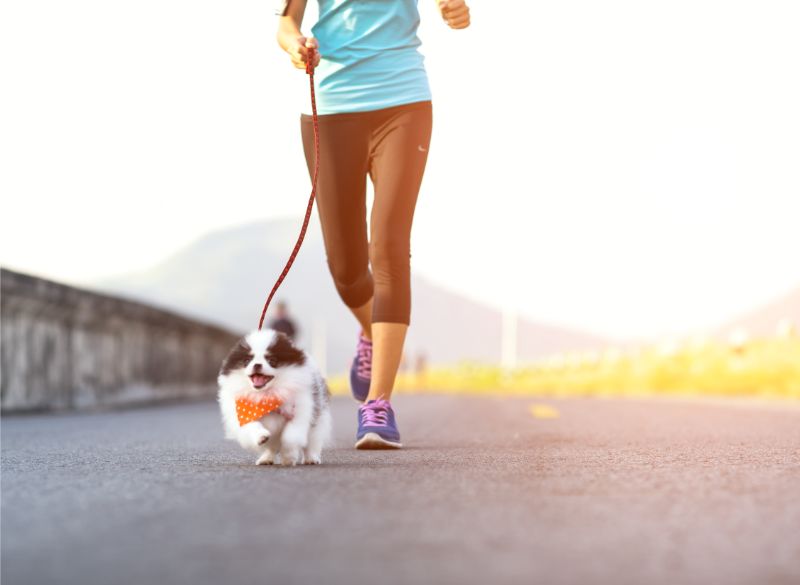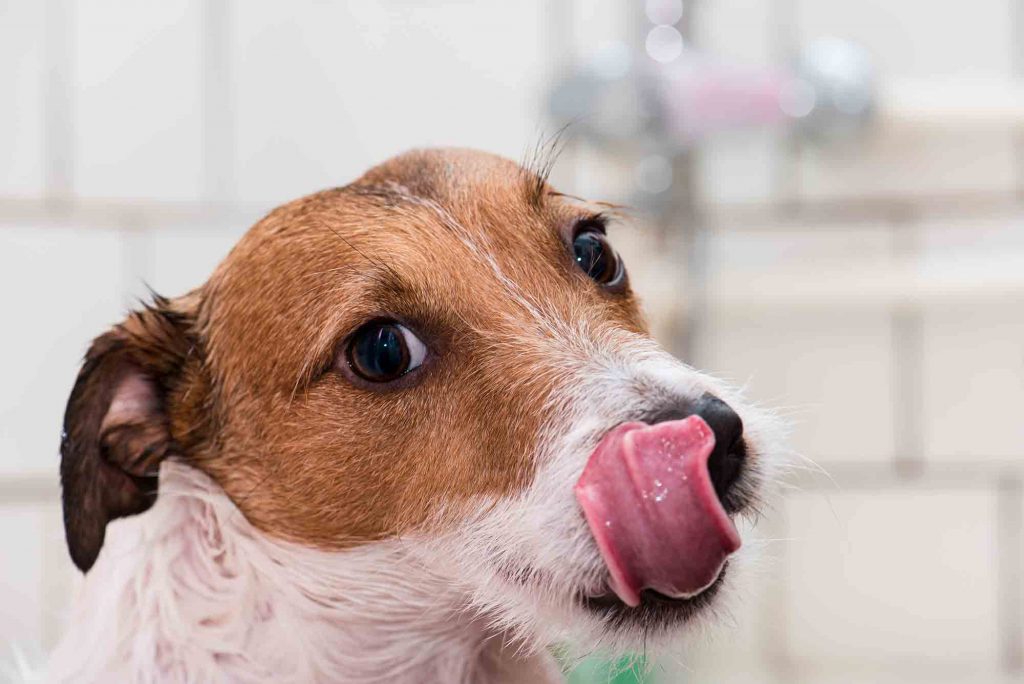Posts in Category: For The Dogs
Does My Pet Have an External Parasite?
When you adopt a pet into your family, you generally are up for whatever comes along with taking care of your new ward. Most people, though, didn’t sign up to take care of any hitchhikers that might come along with their furry family members. Luckily, Volunteer Veterinary Hospital has you covered when it comes to identification, treatment, and prevention of the dreaded external parasite in pets.
Continue…How to Do Your Part to Prevent Zoonotic Diseases in Pets
Zoonotic diseases have been a growing concern for both humans and animals. We have heard a lot recently about these diseases that are transmitted from wildlife to people and pets. There is currently much more of a spotlight on diseases, particularly viruses, that mutate and affect other species.
This is why the team at Volunteer Veterinary Hospital is here with some insight into how to protect everyone from these serious diseases.
Continue…It’s Always Time to Play With Your Dog!

There has never been a better time to play with your dog. You are both home, and frankly, could use a little fun and exercise. Chances are, a little backyard time may be just the diversion to help with your physical and mental health. Let us help with our top 10 games to play together. Enjoy!
The Benefits of Exercise for Dogs
Whether you have a working breed or a content lap dog, they should ideally get between 30-60 minutes of exercise every single day. While it helps if exercise times are part of a strictly followed routine, if you spontaneously decide to embark on a new activity together, you can rest assured knowing you’re doing the right thing for your dog’s health.
Continue…A Spoonful of Sugar? Tricks for Giving Your Pet Medications

When it comes to taking care of your pet, it is definitely a team effort. Of course, you get the best possible care from the staff at Volunteer Veterinary Hospital, but many times treatments extend beyond the walls of our location.
When you are instructed to monitor or treat your pet, it is often imperative to your pet’s well-being that you follow our directions. This can be easier said than done, though, especially for pets who hate taking their pills.
Not to worry! When it comes to giving your pet medications, we have all the tricks.
Continue…Running With Your Dog

When it comes to enjoying the outdoors, getting in a great workout, and bonding with your furry friend, running with your dog can’t be beat. Besides the many health benefits of regular exercise for pets, running provides an outlet for excess energy, reduces boredom and negative behaviors, and strengthens the bond you share.
In case you haven’t noticed, your pet’s safety is one of our top priorities at Volunteer Veterinary Hospital. We want to share some simple do’s and don’ts when it comes to running with your dog.
But First…
- Come see us. Before beginning any exercise program, schedule a wellness exam with your veterinarian. We’ll make sure your best pal is healthy enough for running and is up-to-date on important vaccines and parasite protection.
- Brush up on obedience. A good grasp of basic obedience commands is essential for your dog’s safety. Dogs who run with their owners should be able to heel, not pull at the leash, and respond to basic commands, such as “come” or “drop it.”
- Get in gear. A sturdy, 4-6 foot leash, a harness with a back clip, and a few plastic baggies for doggie waste are all you need before hitting the trail with your pet. Stay away from retractable leashes, as these can be extremely dangerous and offer little control.
Tips for Running With Your Dog
Consider these tips to ensure running with your dog is a successful experience:
- Start slowly – You wouldn’t go from a couch potato to running 10 miles overnight, so don’t expect your dog to do the same. Work up to longer distances slowly with your pet. Additionally, don’t skip the warm-up period anytime you run with your dog – a few minutes of brisk walking or slow jogging is sufficient to get the blood moving and muscles warmed up.
- Be observant – Always pay close attention to your dog’s body language and watch for signs of overexertion or heat exhaustion, such as excessive panting, drooling, stumbling, or slowing down/stopping. Never force your dog to run if they don’t want to.
- Watch the heat – Dogs aren’t able to regulate body temperature as efficiently as humans, meaning that heat stroke or heat exhaustion can come on quickly. Running during the early morning or evening hours is best during warmer months.
- Paw protection – A dog’s paw pads are tough, but they’re no match for hot pavement or asphalt, rocks, sticks, or glass. Whenever possible, choose a softer running surface, such as a trail or grass, and be on the lookout for any debris that could injure your dog’s paws.
We applaud you for giving your dog the joy and health benefits of running! Please let us know if you need more information or would like to schedule an appointment for your pup.
The Mangy Mutt and Other Dog Skin Conditions You Should Know

Perhaps one of the most common reasons that dogs visit us at Volunteer Veterinary Hospital is skin trouble. From fleas to allergies to bacterial infections and everything in between, dogs and dermatological issues go together whether we like it or not. Some dog skin conditions are more common than others, though. It is important for pet owners to have a read on the types of issues that occur and why it’s important that we see your pet when skin trouble erupts.
The Common Culprits
There are entire textbooks devoted to doggy dermatology – not surprising as there are so many skin conditions that can and do occur. Some dog skin conditions are more common than others, though. A few of the more common problems we diagnose include:
Adopting a Shelter Pet: A Primer

So you’ve decided to adopt a shelter pet. Congratulations! Rescues and shelters have wonderful animals who are just waiting to be adopted into their forever homes. But adopting a new dog or cat is not all fun and games; it takes some real planning to make sure this new family member, along with everyone else in the household, has a smooth transition.
Volunteer Veterinary Hospital works with newly adopted pets and their people frequently, and we are happy to share our tips and ideas on adopting a shelter pet.
The Scoop on Why Dogs Eat Poop
 Every dog owner knows their beloved pet sometimes engages in rather distasteful acts – licking themselves at inappropriate times, rummaging through the trash for tasty morsels, investigating dead things, and, arguably the grossest canine behavior: poop eating.
Every dog owner knows their beloved pet sometimes engages in rather distasteful acts – licking themselves at inappropriate times, rummaging through the trash for tasty morsels, investigating dead things, and, arguably the grossest canine behavior: poop eating.
Whether they eat their own poop, raid the litter box, or chomp on wildlife droppings at the park, poop eating (also known as coprophagia) is a disgusting and potentially dangerous habit. Although not every dog owner has to deal with this particular issue, it’s common enough that we want to discuss why dogs eat poop and help you figure out what to do about it.
Continue…
Canine Flu: Outbreaks and Updates
 Canine Flu Has Reached Knoxville! Dog Flu Outbreak Has Owners On Edge! These are headlines you may have read, seen on social media, or heard about on your nightly news program. And it’s true: canine influenza virus has been spreading throughout the United States since its arrival in 2015. Indeed, it is in Knoxville, along with other parts of the South.
Canine Flu Has Reached Knoxville! Dog Flu Outbreak Has Owners On Edge! These are headlines you may have read, seen on social media, or heard about on your nightly news program. And it’s true: canine influenza virus has been spreading throughout the United States since its arrival in 2015. Indeed, it is in Knoxville, along with other parts of the South.
However, while the headlines may seem frightening, we want to assure all pet owners there are ways you can help protect your best fur friend from canine flu. This includes becoming informed of the risks, vaccinating your pet, and staying up-to-date on what’s happening with canine flu in your area.
Knowledge Is Power: Understanding Canine Parvovirus
 Canine parvovirus is considered a core vaccination for dogs, and you have probably heard it mentioned briefly during a pet’s wellness appointment. Some of us know a bit about the disease, or may even know someone who has lost a puppy or adult dog to canine parvovirus.
Canine parvovirus is considered a core vaccination for dogs, and you have probably heard it mentioned briefly during a pet’s wellness appointment. Some of us know a bit about the disease, or may even know someone who has lost a puppy or adult dog to canine parvovirus.
Because parvo is so prevalent, and so deadly, it’s important for pet owners to be aware of the specifics surrounding its symptoms, how it’s contracted and treated and, most importantly, how you can prevent it from becoming a reality for your pet.



